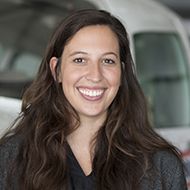Northwest Aviation Conference and Trade Show comes back
Job seekers find warm welcome
The Northwest Aviation Conference and Trade Show returned to the Washington State Fairgrounds in Puyallup after a one-year hiatus forced by the coronavirus pandemic and buzzed with vendors, visitors, and airlines looking to hire.
The event was held over the final weekend in February, returning in full force for its thirty-eighth edition.
“We’ve had a steady stream of qualified, quality applicants. There’s a captive audience here in Puyallup …. because the pilots who show up really want to work for us,” said Ron Limes, chief pilot for Alaska Airlines' Seattle-Tacoma International Airport base. With Alaska Airlines headquartered in Seattle, Scott Day, system chief pilot, noted that “it’s nice to be able to support the local aviation community.”
AOPA President Mark Baker addressed the crowd on Saturday afternoon during the AOPA Pilot Town Hall. He shared successes within the association like the AOPA Pilot magazine redesign, the AOPA Air Safety Institute’s influence on the low accident rate, the successes of the You Can Fly program, as well as the potential of the new AOPA Flight Training Advantage app. Baker highlighted advocacy wins in the region at airports like Boeing Field/King County International Airport, Renton Municipal Airport, and Glenwood Springs Municipal Airport, where AOPA helped save hangars, protect the only public-use seaplane dock within 1,000 nautical miles, and maintain the length of the runway.
Baker also teased future AOPA fly-ins, noting that while the exact location is still a mystery, one of this year’s fly-ins will likely be in the Pacific Northwest.
In the Q&A session, several questions focused on the rising concerns around 100LL, and the real and threatened ban at some local airports. When asked what this transition looks like, and what obstacles the industry faces, Baker said, “We have to recognize that general aviation, unfortunately, is the largest polluter of airborne lead.” An amount, he noted, that “is very, very small, but one we need to get rid of”
“I don’t want us to run out of 100LL and stop distributing that until we have a replacement that’s economical, and that’s why we all signed up for ‘no later than eight years,’” continued Baker, referencing the recent initiative for a non-leaded alternative fuel by 2030 led by AOPA and the General Aviation Manufacturers Association. “We believe that it’s going to happen faster than that.”
He went on to state that pilots “are going to have a safe fuel first, and a safe transition, that keeps low lead available until we have a solution.”
The conference is scheduled to return to Puyallup in 2023.





